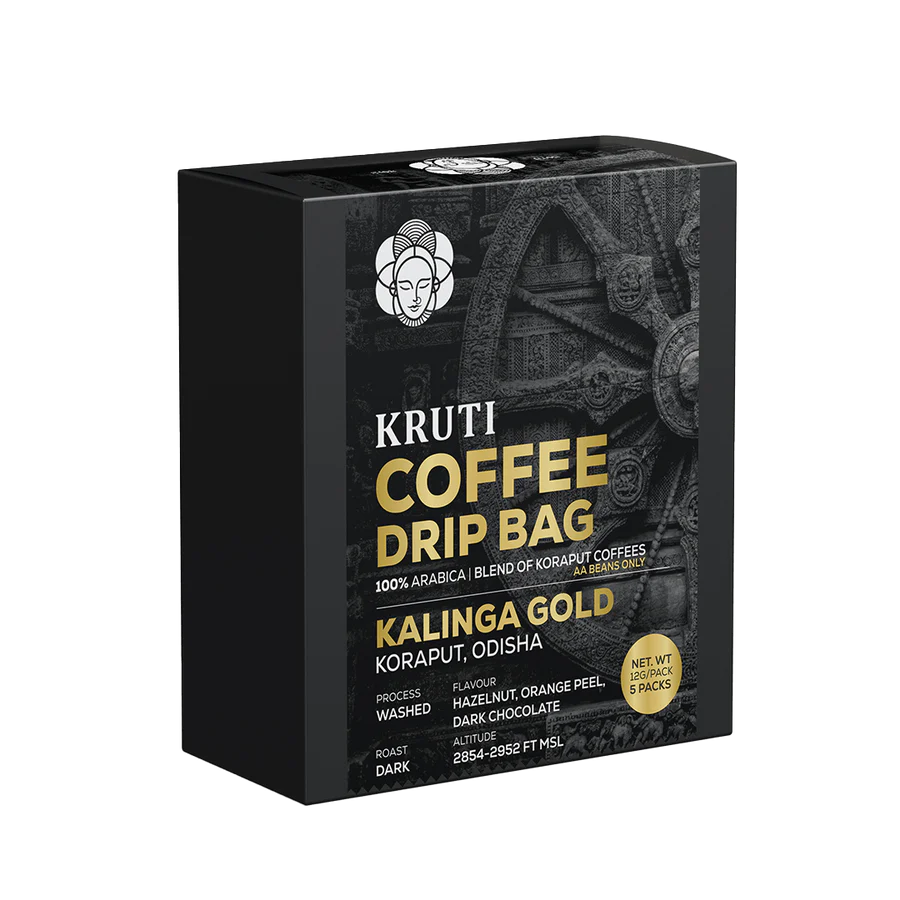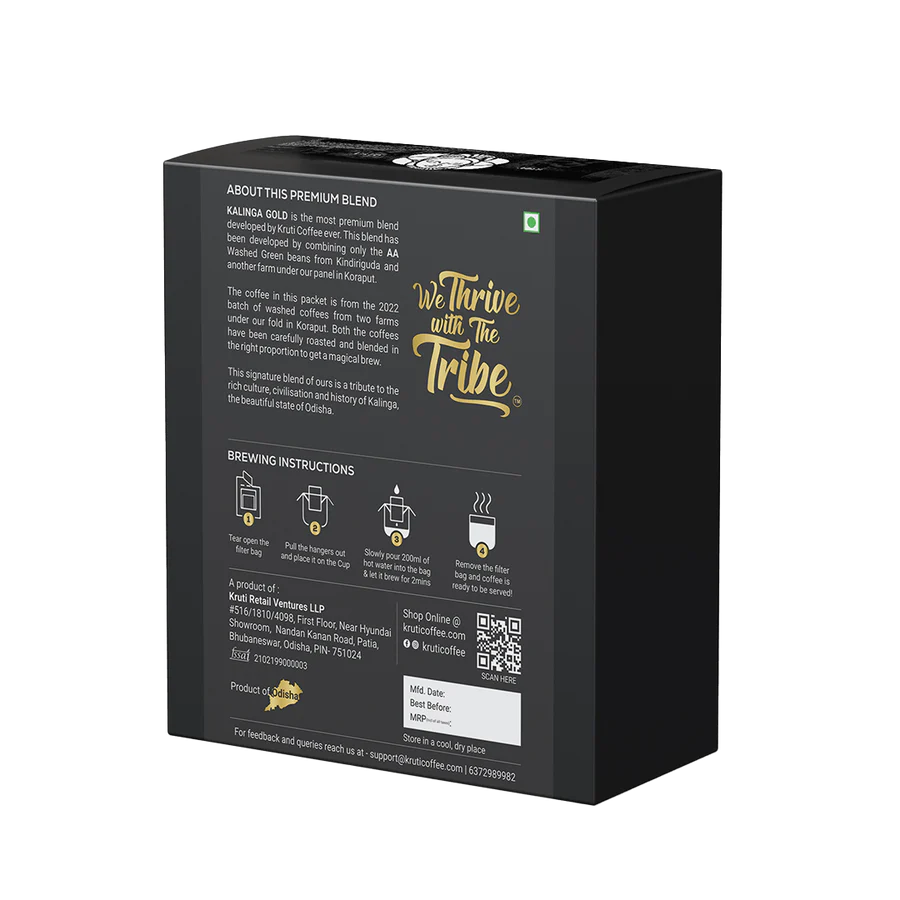Kruti Coffee – Kalinga Gold Drip Bag | Dark Roast – Pack of 5
₹299.0
-
Product Info
100% ARABICA | BLEND OF KORAPUT COFFEE
PROCESS: WASHED FLAVOUR: HAZELNUT, ORANGE PEEL & DARK CHOCOLATE
ROAST: DARK ALTITUDE: 2854-2952 FT MSL
ORIGIN: KORAPUT,ODISHA
USP: FOREST GROWN, SHADE GROWN , TRIBAL GROWN
QUANTITY: 5 DRIP BAGS (EACH 12 GRAM)
These drip bags have been specially designed to make brewing easy for you at home or as you travel. Please refer packaging for brewing instruction.
The coffee in this packet is from the 2021-2022 batch of washed coffee from two farms under our fold in Koraput. Both the coffees have been carefully roasted and blended in the right proportion to get a magical brew. This signature blend of ours is a tribute to the rich culture, civilization and history of Kalinga, the beautiful state of Odisha.
About Kalinga Gold:
Kalinga Gold is the most premium blend developed by Kruti Coffee ever. This blend has been developed by combining only the AA Washed Green beans from Kindiriguda and another farm under our panel in Koraput.
- Description
- Additional information
- Reviews (0)
- Q & A
- Sustainability Remark
- More Offers
- Store Policies
- Inquiries
| brands | Kruti Coffee |
|---|
You must be logged in to post a review.
Q & A
Organic coffee is generally considered to be more sustainable than conventionally grown coffee due to its cultivation practices and environmental impact. Here are some key aspects that contribute to the sustainability of organic coffee:
Environmental benefits: Organic coffee farming practices prioritize the use of natural methods to maintain soil fertility, control pests, and manage weeds. This typically involves avoiding synthetic fertilizers, pesticides, herbicides, and genetically modified organisms (GMOs). These practices help minimize the negative impact on ecosystems, preserve biodiversity, and protect the soil and water resources.
Chemical-free production: Organic coffee is grown without the use of synthetic chemicals, which reduces the risk of chemical residues ending up in the coffee beans and surrounding environment. This is not only beneficial for consumers but also for farmers and workers who handle the coffee plants.
Soil conservation: Organic coffee farming often incorporates practices like composting, crop rotation, and agroforestry systems, which enhance soil health and fertility. These techniques improve the soil structure, prevent erosion, increase water retention, and promote long-term sustainability of the land.
Wildlife preservation: Organic coffee farms tend to provide more favorable habitats for wildlife compared to conventional coffee farms. By avoiding chemical pesticides and creating a diverse agroecosystem, organic farms support a greater variety of plant and animal species, including birds, insects, and other wildlife.
Social impact: Organic coffee production often promotes fair trade practices and better working conditions for farmers and workers. Certification programs, such as Fair Trade, ensure that farmers receive fair prices for their crops, enabling them to invest in sustainable farming practices, education, healthcare, and community development.
Consumer demand: There is a growing demand for organic products, including coffee, from environmentally conscious consumers. This increased demand can incentivize farmers to adopt organic practices, leading to a wider adoption of sustainable agricultural methods.
While organic coffee offers several sustainability benefits, it is important to note that the overall sustainability of any coffee product is influenced by various factors, including transportation, packaging, and waste management throughout the supply chain. Additionally, the specific practices and standards followed by individual coffee producers may vary, so it is advisable to look for third-party certifications like USDA Organic or equivalent standards to ensure the credibility of organic claims.
General Inquiries
There are no inquiries yet.



















Reviews
There are no reviews yet.